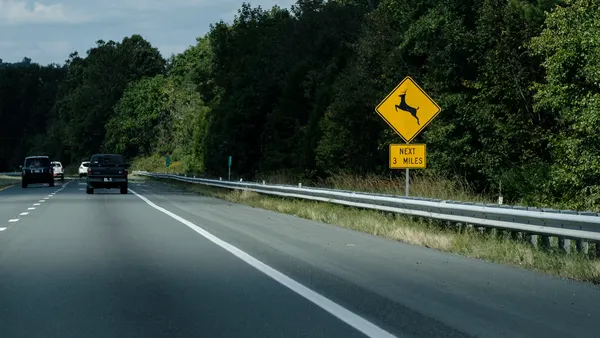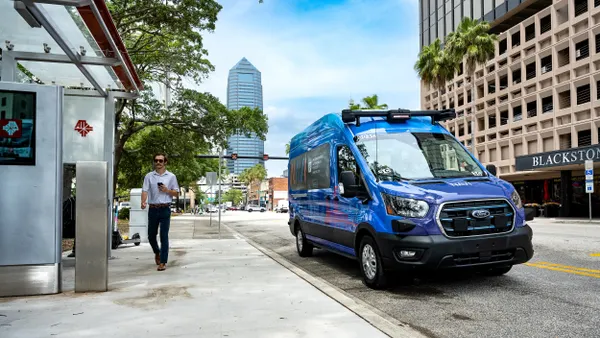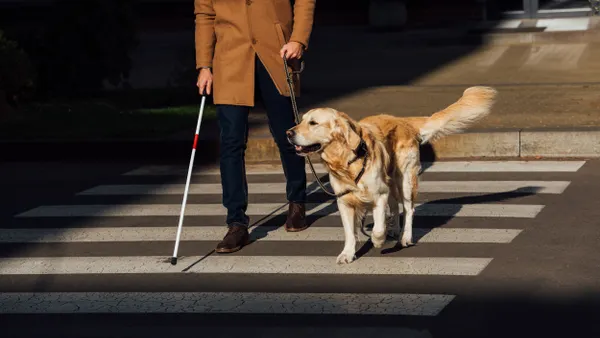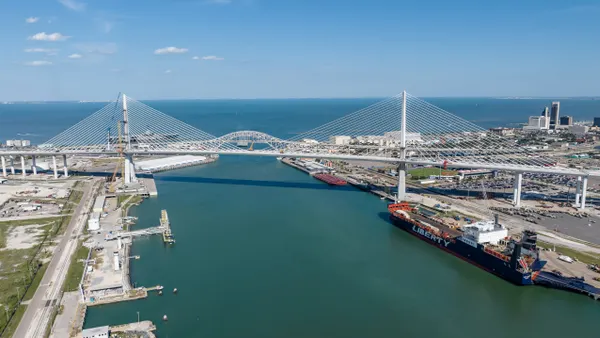Dive Brief:
- The U.S. Department of Transportation (DOT) has approved changes to the way Columbus, OH will spend its $40 million grant prize from the DOT's 2016 Smart City Challenge, according to Columbus Business First.
- The city won the challenge on a proposal that the grant money would be used toward a number of projects including an app for delivery drivers to reserve times for loading docks, bus collision avoidance sensors, smart street lights and enhanced permit parking. Those four projects have now been cut from the grant — the app and sensors were deemed unneeded, while the street lights and permit parking are already being worked on by the city.
- Columbus instead added a new project to the grant, which is aimed to increase transportation help for prenatal doctor visits. The system would provide two-way transportation for pregnant women on Medicaid with a goal of decreasing the city's infant mortality rate.
Dive Insight:
Columbus Business First reports that the themes covered by the grant are connected vehicles, enhanced public services for low-income and disabled residents, and emerging technologies. And while the new project for prenatal care falls under one of these themes, the altered proposal is not quite what the city originally submitted to win the grant money — which may result in backlash from one of the other 77 cities that submitted proposals to the DOT.
Either way, the revised use of the grant money will likely better position the city for achieving smart development and reaching the goals proposed by the Smart City Challenge. The original 2016 proposal brought together city and state leaders from all political parties to collaborate on how to advance Columbus, and it is hopeful that these bipartisan efforts will continue as plans begin to roll out moving into 2018.
Moving forward, it may be in the best interest of all involved parties to require cities to gauge interest of proposed projects before they're included in a grant submission. While it is beneficial that Columbus researched the need for some of its projects like the delivery driver app before rolling it out, the result indicated that the city could have allocated its efforts and resources in another area from the get-go. The DOT and other cities may take note of this when planning for grants in the future.










